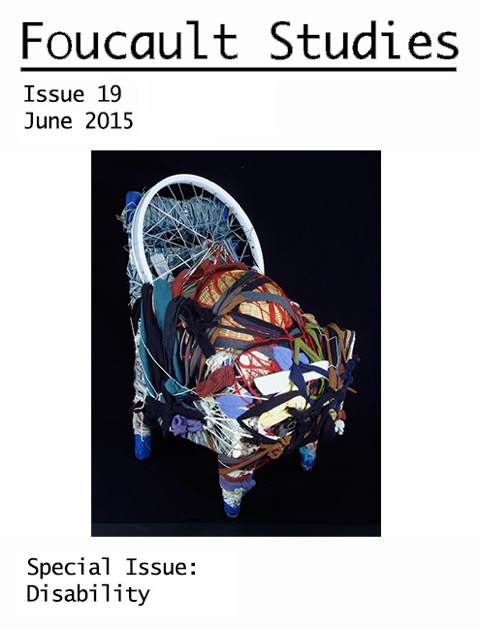Alea Capta Est: Foucault’s Dispositif and Capturing Chance
DOI:
https://doi.org/10.22439/fs.v0i19.4830Keywords:
Aleatory, chance, discursive formation, dispositif, overdetermination.Abstract
It is somewhat of a mystery why one of Foucault's most important concepts—that of ‘dispositif’—is still quite vague in social and political theory; and while a small number of analyses have moved understanding forward, it remains stubbornly opaque. This paper argues that a strengthening of Foucault's concept can be achieved by (i) integrating elements of Althusser’s formulation of a dispositif (with its links to aleatory (‘chance’) events), and (ii) a detailed examination of the shared conceptual history between dispositifs and discursive formations. Regarding (i), the paper contends that dispositifs restrict three types of aleatory event: first, a ‘continuous present’ exerted upon objects and subjects; second, overdetermining repetitious occurrences; and third, negating the effects of unexpected aleatory events. The paper also argues that dispositifs are capable of producing certain forms of aleatory change. Regarding (ii), four developmental thresholds of dispositifs are identified: strategic emergence, political elaboration, overdetermined a priori, and aleatory dominance. These two developments are argued to move Foucault's concept from being descriptive and largely passive to becoming a more theoretically active resource—what Deleuze terms changing the analytical (i.e. analysis of the past) to the diagnostic (i.e. interrogation of the present).
Downloads
Published
How to Cite
Issue
Section
License
Authors retain copyright to their work, but assign the right of the first publication to Foucault Studies. The work is subject to a CC BY-NC-ND 4.0 license, but despite these restrictions, authors can take for granted that Foucault Studies will permit articles published in Foucault Studies to be translated or reprinted in another format such as a book providing a full reference is made to Foucault Studies as the original place of publication.



